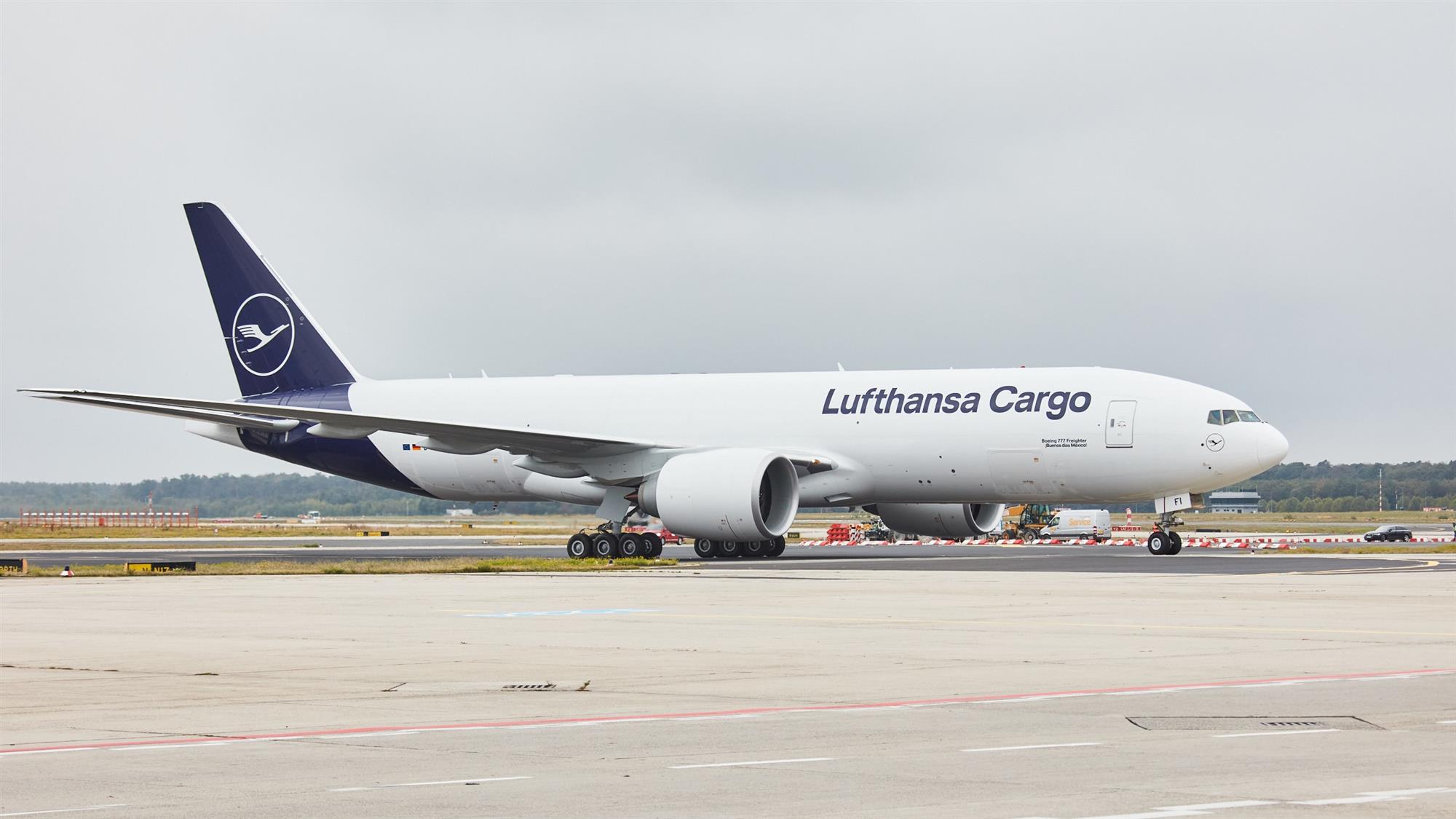An elated Dorothea von Boxberg, chair and CEO of Lufthansa Cargo, reviewed the cargo carrier’s “outstanding performance” in 2020 but also tried to rein in high expectations for the current year.
“Yes, last year’s result was outstanding, but this result will not be sustainable this or next year because of the special circumstances created by the Covid pandemic in 2020,” she told Asia Cargo News in an interview after the carrier’s recent annual press conference in Frankfurt.

The conference, like so many others, was held virtually for cargo journalists.
Von Boxberg characterized the cargo carrier’s EBIT of €772 million (US$933.6 million) as “far more than what we could have imagined.”
The high earnings were all the more remarkable because passenger aircraft providing belly capacity were grounded for many months.
She attributed the result – the best in its 26-year history – to a surge in revenue, while costs declined by 27%.
“The dual formula of cutting costs and increasing tonnage was key to the robust 2020 result,” she said.
The average load factor improved by 7.8 percentage points to 69.1%.
“We expect 2021 to be a good year, though It may not be at the level of 2020,” she said, adding that “extraordinary circumstances” in 2020 had led to the robust growth and profits, surpassing even the previous-best earnings in 2010 (€342 million), which had been a record year for the cargo carrier.
Last year’s figures will unlikely recur in 2021, also because of the expected revival of the global passenger traffic which will ease the tight capacity pressure. “Nevertheless, we are very positive about the outlook for the air freight programmes.”
But LH-Cargo had also faced challenges along the way in 2020, as many markets were hit by a Covid-19 downturn. China, a major market of the carrier, had experienced then a downturn. Von Boxberg did not rule out a slowdown ahead, but she was optimistic about e-commerce with platforms such as Amazon and others lifting up business. “e-commerce is expected to play an important role in the cargo business,” she said.
Last year’s success had also allowed the cargo carrier to make investments for the future, including the goal to make air freight “sustainably better” and further strengthen its home base in Frankfurt. According to von Boxberg, LH Cargo is embarking on modernizing its Air Cargo Centre in Frankfurt in the coming years; the ACC is a focal point of the carrier’s traffic, processing some 60% of its global cargo movement.
In another cost-cutting effort, LH Cargo will push for digitalization and the elimination of all paper documents, including airway bills and the like. Furthermore, the cargo carrier is striving for a round-the-clock service to update customers on shipments and also get feedback from them. As in the case of other carriers, digitalization is also LH Cargo’s mantra to ensuring the carrier’s strong position.
“Digitalization is essential to faster processing of air freight shipments. Airfreight shipments take about six days and we intend to cut that time by digitalization.”
Von Boxberg also discussed modernizing the freighter fleet and inducting aircraft that have larger cargo capacity and greater fuel efficiency.
“This year, we will add another highly efficient Boeing 777F aircraft to our freighter fleet. In doing so, we will also secure jobs in the cockpit and in other areas,” von Boxberg announced. In addition to the bellyhold capacities of Lufthansa, Austrian Airlines, Brussels Airlines, Eurowings and SunExpress, the cargo airline will thus provide its customers with the capacity of 14 modern wide-body freighters in the future.
The aircraft is scheduled to arrive in Frankfurt by fall 2021 and will be stationed there. The twin-engine 777F is considered the most efficient freighter in its class.
LH Cargo recently sold its MD-11 freighters. The carrier had, originally, wanted to phase out the MD-11 freighter last year, but this was postponed because of the overwhelming demand for cargo space. It has been replacing the MD-11Fs with the 777Fs, which have a higher load capacity of 105 tons, compared with 91 tons of the MD-11Fs.
“Now that we are optimally positioned with one of the world’s most modern freighter fleets, we will work with our customers to drive forward the regular use of sustainable fuels,” von Boxberg said, pointing out that in November 2020, the cargo carrier had already become the world’s first cargo airline to operate a rotation fully compensated with sustainable aviation fuel (SAF).
“China, which had a slowdown, has bounced back,” von Boxberg said, particularly now that the China business is, again, doing well because of surging exports. U.S. imports had sharply risen, with warehouses busy replenishing their stocks. European confidence is coming back, and Germany shows good signs of revival in the automotive business while demand for pharmaceutical shipments have also risen.
Asked if the rush for Covid-19 vaccines had contributed to the carrier’s surge in traffic, von Boxberg replied that the vaccines had not played any major role in the tonnage.
However, the main boost was provided by the overwhelming demand in major markets for personal protection equipment (PPEs) and high-tech products from China, Japan, South Korea, etc. Pharma exports, particularly from the U.S., India and Germany, also contributed to the boost in traffic. “We expect we will export more vaccines in the coming year or so,” she added.
The pharma air-cargo segment will continue to play an important role in the carrier’s business. Consequently, LH Cargo’s pharma centres in Munich and Chicago, inaugurated in summer 2020, were recently CEIV Pharma certified, bolstering its global network of 32 stations.
By Manik Mehta
International Correspondent | New York



